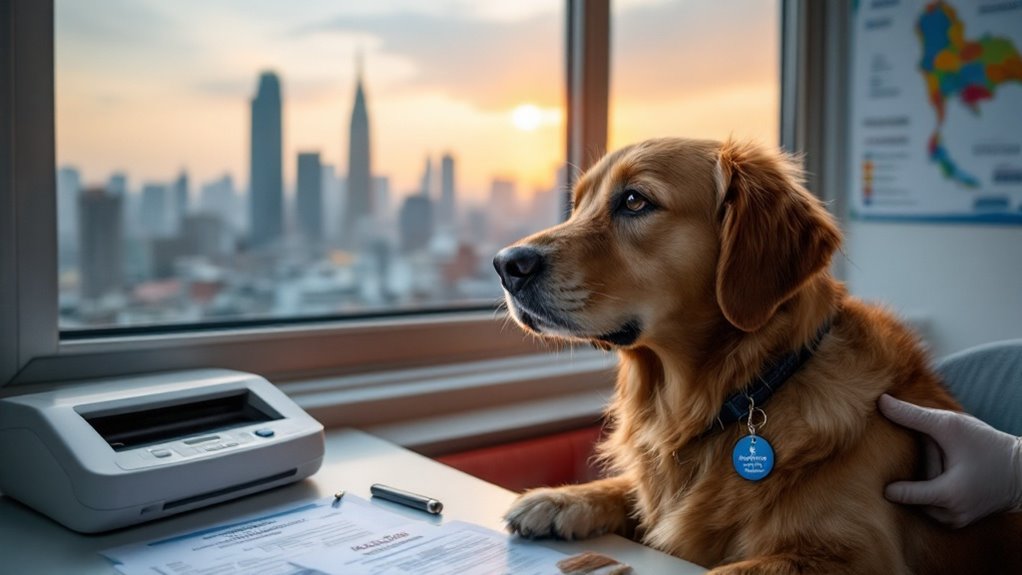If you live in Bangkok, you’ll have to register and microchip your dogs and cats by January 10, 2026, regardless of your home type, and new pets must be registered within strict timelines. Pet limits are based on property size, and you face penalties for failing to comply. Dangerous breeds require muzzles and short leashes in public, and pets are largely barred from most public spaces. These measures suggest Thailand could soon see similar rules nationwide—here’s what else you need to know.
Starting January 10, 2026, Bangkok will enforce an extensive set of pet regulations that require all residents to register their dogs and cats, regardless of where they live. If you own a pet, you’ll need to comply whether you live in an apartment, townhouse, or detached home.
The registration mandate covers every dog and cat, including newborns (within 120 days of birth) and newly acquired animals (within 30 days of acquisition). There aren’t any exemptions for age, breed, or living arrangements, so these rules apply uniformly across the city. In addition, economic animals such as cows, horses, ducks, and chickens are only allowed in specifically designated areas to ensure proper population management.
A critical requirement is the implantation of a microchip in each registered animal. These microchips store unique identification data and link pets directly to their owners within an official database. The chips are non-transferable, which means ownership accountability is strictly maintained. The microchipping requirement was introduced because authorities want to reduce the rising number of stray animals in Bangkok.
While the city hasn’t detailed exact enforcement methods, you should expect penalties if you fail to register your pets or comply with microchipping. Municipal audits, likely carried out by microchip scans, will help authorities verify compliance, and repeated violations may result in confiscation of animals.
Bangkok’s regulations also set strict limits on how many pets you can keep, determined by your home’s size. Apartment residents in units between 20 and 80 square meters may keep only one pet, while those with larger apartments (over 80 square meters) can have up to two.
If you live on land up to 20 square wah, you’re limited to two pets, up to four on 100 square wah, and a maximum of six if your property exceeds 100 square wah.
For breeds classified as dangerous, such as pit bulls and rottweilers, the rules are even stricter. These dogs must wear muzzles and be leashed with a maximum length of 50 centimeters in public. You may need a special permit to own such breeds, and you’ll face higher liability if incidents occur.
The city also mandates leashes outdoors, requires immediate waste cleanup, and restricts pets from most public spaces except for legitimate medical or religious purposes.
These measures aim to control stray populations, improve public health, and could set a precedent for similar rules across Thailand.









